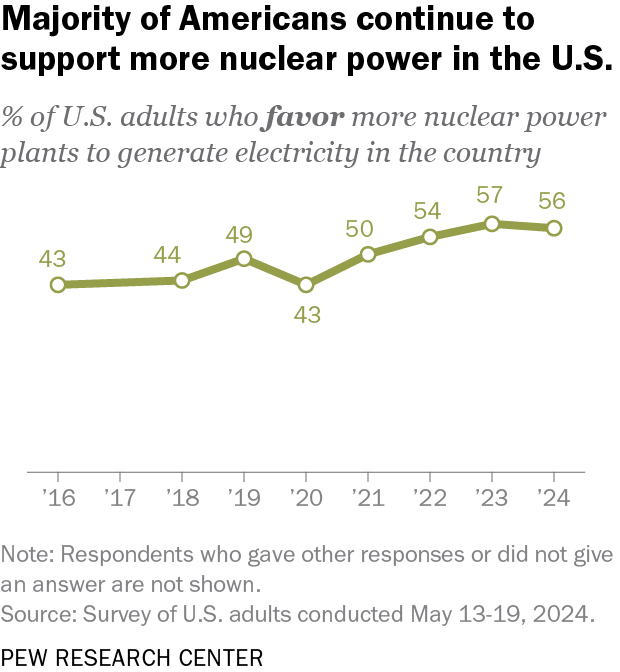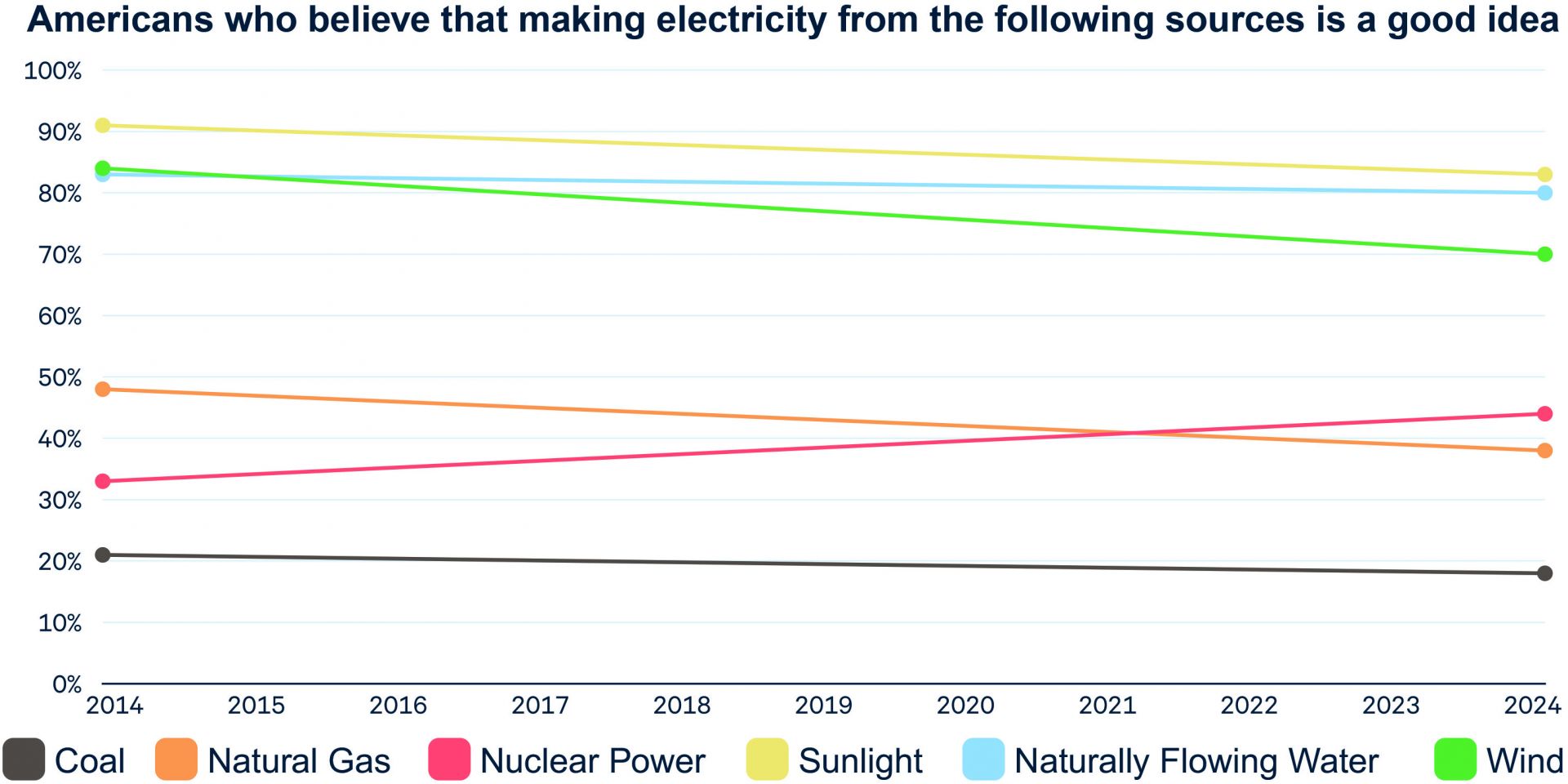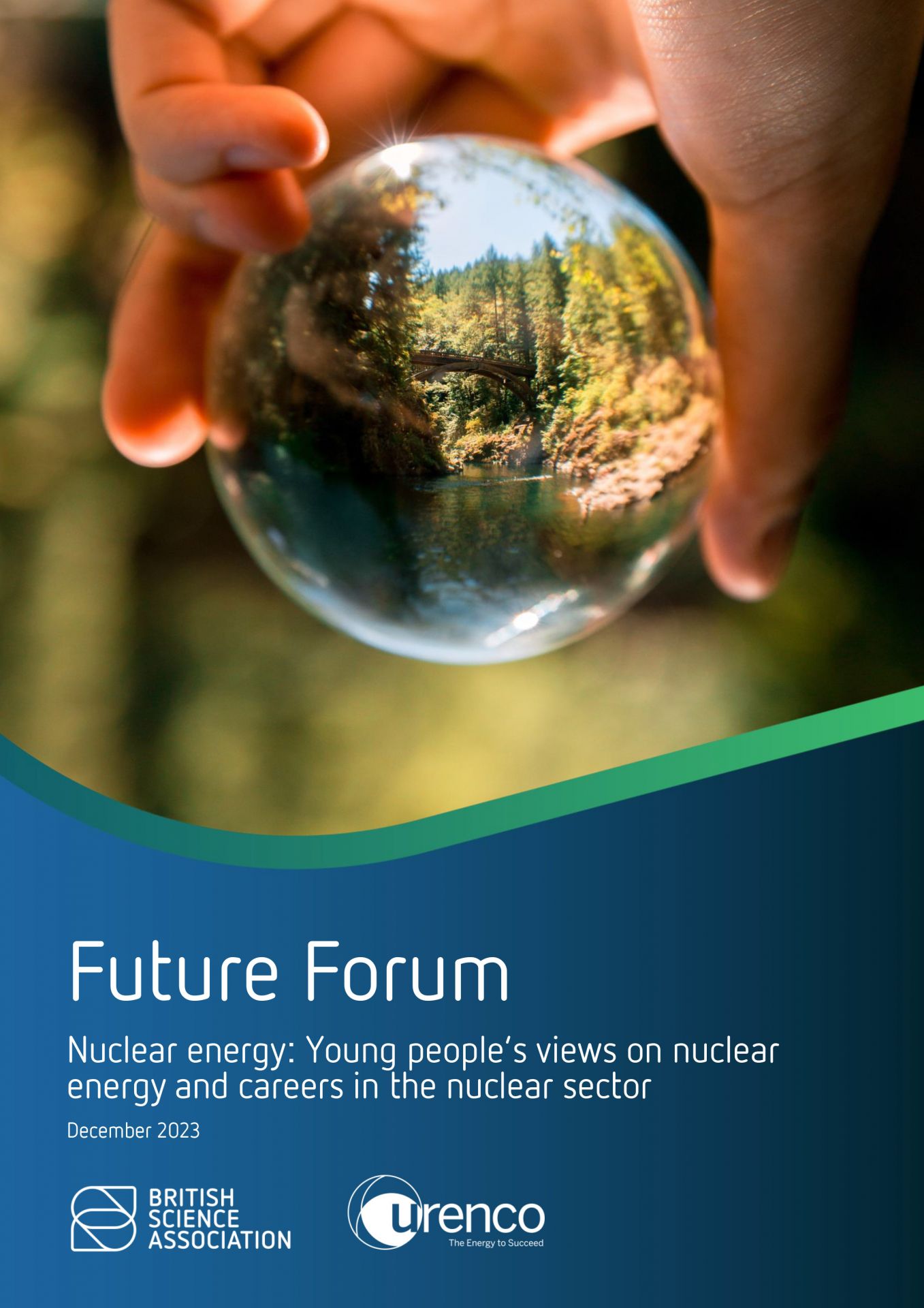Nuclear was the only energy source to show a boost in public opinion over the past decade. (Graph: Jon A. Krosnick and Bo MacInnis, Climate Insights 2024: American Understanding of Climate Change; Washington, DC: Resources for the Future; 2024.)
A new report based on what its authors call “the definitive American public opinion surveys on climate change and the environment” has found a statistically significant increase in the percentage of survey respondents who think nuclear power is a good way to generate electricity, relative to a survey that asked the same question in 2013. That’s despite evidence that “Americans’ views on climate change have remained remarkably steady.” The new report, Climate Insights 2024: American Understanding of Climate Change, is the product of a 27-year polling partnership led by the Political Psychology Research Group at Stanford University and Resources for the Future (RFF), and it was released July 15.



 A number of surveys and polls, such as
A number of surveys and polls, such as 


 Almost two-thirds of 14- to 18-year-olds in the United Kingdom would consider a career in nuclear if they knew more about it, according to a new report,
Almost two-thirds of 14- to 18-year-olds in the United Kingdom would consider a career in nuclear if they knew more about it, according to a new report,